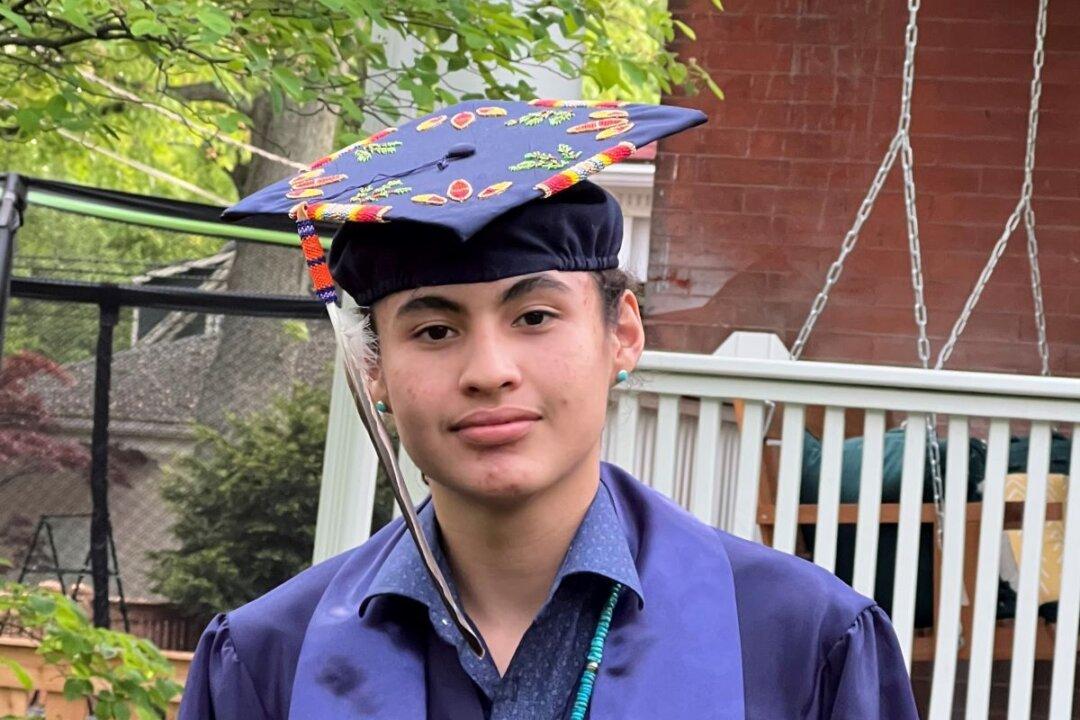Nimkii Curley grew up hearing the stories of his grandparents and great grandparents, all survivors of the Federal Indian boarding school system which purposely erased Native American culture in generations of children, spanning 150 years, in an effort to take Native American land.
His Navajo grandfather, 90, lives with Curley, 17, and his parents and siblings, in their Evanston, Illinois home. Curley has tribal affiliation with the Turtle Clan Ojibwe Anishinaabe and the Navajo Dene Black Sheep Salt Clan. He was raised to understand, appreciate, and live in his culture, including its spiritual traditions. That is why he was so honored when, for high school graduation, he received gifts from his community, including beads to decorate his cap, traditional flowers for his stole, and most special, an eagle feather which he hung where the cap tassel would be.





